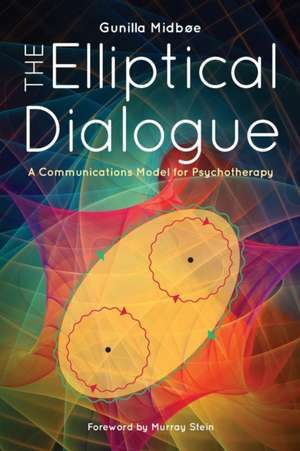The Elliptical Dialogue
Autor Gunilla Midbøeen Limba Engleză Paperback – 19 iun 2017
| Toate formatele și edițiile | Preț | Express |
|---|---|---|
| Paperback (1) | 184.20 lei 6-8 săpt. | |
| Chiron Publications – 19 iun 2017 | 184.20 lei 6-8 săpt. | |
| Hardback (1) | 414.91 lei 6-8 săpt. | |
| Chiron Publications – 21 iul 2017 | 414.91 lei 6-8 săpt. |
Preț: 184.20 lei
Nou
Puncte Express: 276
Preț estimativ în valută:
35.25€ • 36.52$ • 29.42£
35.25€ • 36.52$ • 29.42£
Carte tipărită la comandă
Livrare economică 21 martie-04 aprilie
Preluare comenzi: 021 569.72.76
Specificații
ISBN-13: 9781630514174
ISBN-10: 1630514179
Pagini: 204
Dimensiuni: 152 x 229 x 13 mm
Greutate: 0.45 kg
Editura: Chiron Publications
ISBN-10: 1630514179
Pagini: 204
Dimensiuni: 152 x 229 x 13 mm
Greutate: 0.45 kg
Editura: Chiron Publications
Notă biografică
Gunilla Midbøe, MSW., certified psychotherapist, supervisor and Jungian psychoanalyst, works in private practice in the western parts of Sweden. She is a board member of the Jungian Foundation in Sweden, editor for the net journal Coniunctio and a board member of the Danish Society of Analytical Psychology, as well as a member of DSAP's training committee. She has presented clinical papers at IAAP conferences in Vilnius, St Petersburg and congress in Kyoto, written articles and lectures within the field of analytical psychology. Her main spheres of interest include how symbols and language interact and contributes to individuation within the analytical relationship and the development of contemporary analytical psychology. Visit her website at www.gunillamidboe.se.
